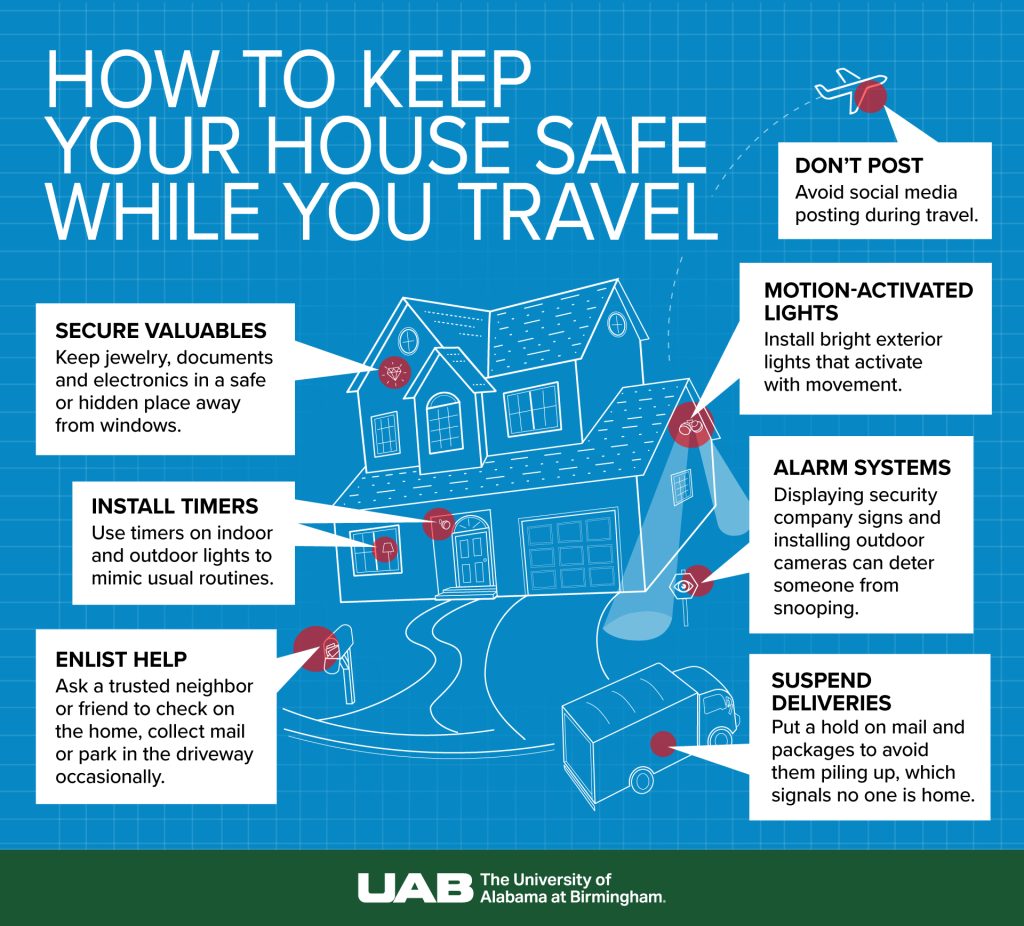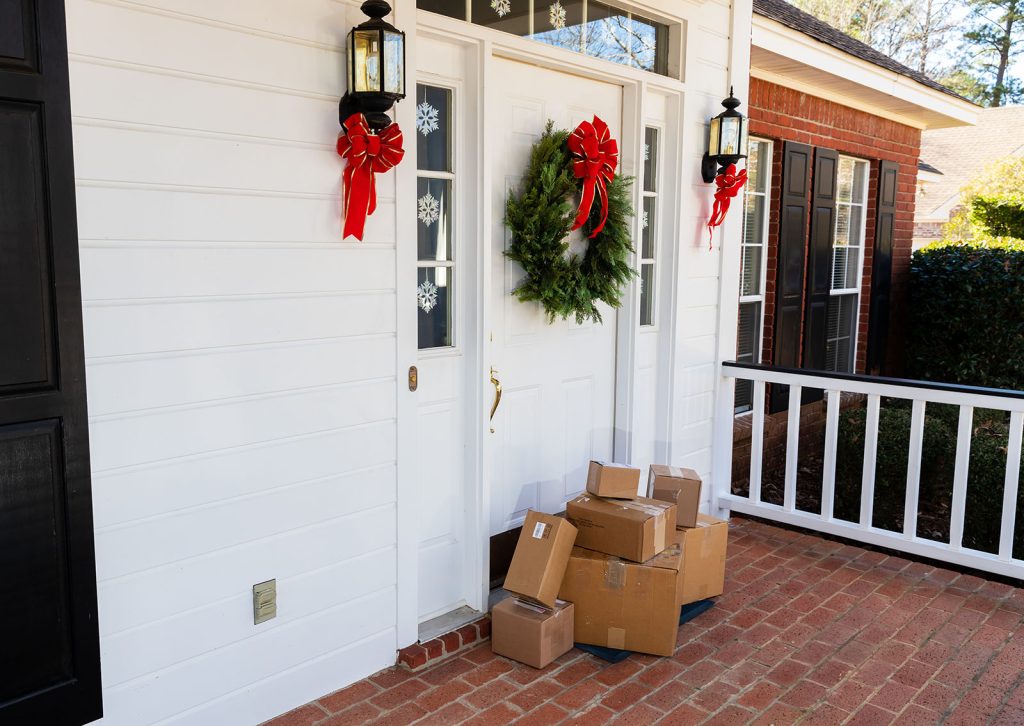The most wonderful time of year can be filled with many trips to see family and friends. When he leaves home alone during a trip, a University of Alabama at Birmingham The security expert says there is no need to set up traps or tripwires. Just make sure the following items are added to the to-do list before loading the sled to keep homes safe, prevent damage, and prevent potential hazards.
Safety and security
Corporal Kimani George in the UAB Department of Police and Public Safety says there are several safety tools and precautions one can take when leaving the house for an extended period of time.
“A simple step is to lock everything down. Make sure all doors, windows and entry points are locked, including garage doors and sliding glass doors,” George said. “Secure exterior doors with heavy-duty deadbolt locks and leave blinds or curtains in their usual position. Completely closed curtains can clearly indicate your absence.
In addition to traditional locks, George recommends taking extra precautions and using the following to increase security:
- Pause deliveries: Pause mail and packages to prevent them from piling up, meaning no one is home.
- Install timers: Use timers on indoor and outdoor lights to mimic regular routines.
- Ask for help: Ask a trusted neighbor or friend to check the house, collect the mail, or pull into the driveway from time to time.
- Secure Valuables: Keep your jewelry, documents, and electronics in a secure or hidden location away from windows.
- Use motion-activated lights: Install bright outdoor lights that activate with motion.
- Activate alarm systems: Display security company signs prominently.
- Install exterior cameras: Having visible cameras outside a home can deter someone from snooping.
“When planning your vacation trip, avoid hiding your keys under rugs, in flower pots, or in other predictable places. It’s best to leave a spare key with a loved one or trusted neighbor,” George said. “Overgrown lawns are another telltale sign of a vacant home, so arrange for maintenance if the vacation stretches over a few weeks.”

Prepare for the natural elements
During winter, the risk of damage to infrastructure due to weather and natural disasters may increase.
“In Alabama, we've seen everything from frost warnings to tornado warnings during the holiday season. Make sure when you travel to prepare your home for any natural elements,” George said.
George recommends preventing water damage by shutting off water supply lines to prevent leaks or burst pipes and draining exterior faucets and pipes. Insulate exposed pipes and test a sump pump, if the home has one.
- He suggests reviewing the following checklist for fire hazards before traveling
- Unplug non-essential electronics and use surge protectors
- Make sure smoke and carbon monoxide detectors are working
- Clean the fireplace or wood stove if it has been recently used
To protect yourself from the cold, set the thermostat to at least 55°F (13°C) to prevent pipes from freezing, and open cabinet doors under sinks to allow warm air to circulate. If a home is in a storm-prone area, a backup generator can be purchased to keep essential systems running while you are away from home.
Potential risks
When making a list of safety do's and don'ts before you go on vacation, be sure to add social media to the list. Announcing vacation plans or posting travel photos before heading home can pose a security risk, George says.
“By posting photos from your trip on social media, you are alerting the public that your home is currently vacant,” George said. “It’s safer to wait until you return home before sharing memories of your trip.”
If photos are shared on social media before a trip ends, George recommends checking the account's privacy settings to limit who can see the post.
Learn how to boost holiday safety at home with these toy safety tips.


